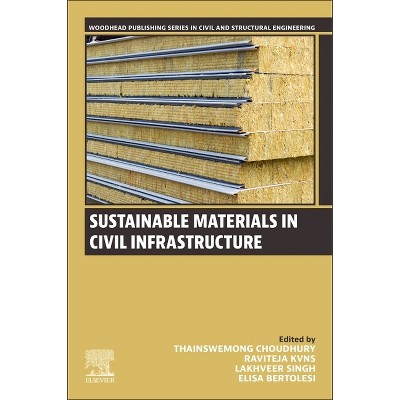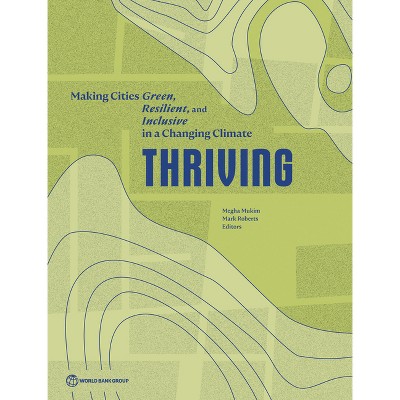Sponsored

Off the Books - (Sustainable Infrastructure) Abridged (Paperback)
In Stock
Sponsored
About this item
Highlights
- Developing countries face massive infrastructure needs, but public spending on infrastructure is inadequate, and public investment has been declining in recent years.
- About the Author: The World Bank came into formal existence in 1945 following the international ratification of the Bretton Woods agreements.
- 176 Pages
- Business + Money Management, Economics
- Series Name: Sustainable Infrastructure
Description
About the Book
Fiscal risks associated with infrastructure are both more frequent and larger than previously assumed. Off the Books: Understanding and Mitigating the Fiscal Risks of Infrastructure quantifies the magnitude and prevalence of these risks in electricity and transport and identifies their root causes across a range of low- and middle-income countries.
Book Synopsis
Developing countries face massive infrastructure needs, but public spending on infrastructure is inadequate, and public investment has been declining in recent years. Rising debt levels and tightening fiscal and monetary conditions are putting further pressure on the funds available for infrastructure, heightening the importance of increasing the efficiency of infrastructure spending. Off the Books: Understanding and Mitigating the Fiscal Risks of Infrastructure shows that however governments deliver infrastructure--through direct public provision, state-owned enterprises (SOEs), or public-private partnerships (PPPs), the risk of fiscal surprises is high in both good times and bad. As a result, infrastructure service delivery often ends up costing significantly more than expected, eroding limited fiscal space for productive spending. This book makes a unique contribution by quantifying the magnitude and prevalence of fiscal risks from electricity and transport infrastructure and identifying their root causes across a range of low- and middle-income countries. Drawing on important new sources of evidence and compiling many others, the analysis sheds light on how much is at stake in the good governance of infrastructure sectors. It allows policy makers to weigh the magnitudes of different types of risks and examine how they vary across contexts. Off the Books shows how a deeper understanding of the fiscal risks of infrastructure can help policy makers target reforms to areas where they can be expected to have the greatest impact. It lays out a reform agenda for mitigating the fiscal risks associated with infrastructure based on building government capacity; adopting integrated public investment management and integrated fiscal risk management; improving fiscal and corporate governance of SOEs; and ensuring robust PPP preparation, procurement, and contract management. The book will be of enormous value to policy makers, practitioners, and academics who have an interest in infrastructure and fiscal policy.About the Author
The World Bank came into formal existence in 1945 following the international ratification of the Bretton Woods agreements. It is a vital source of financial and technical assistance to developing countries around the world. The organization's activities are focused on education, health, agriculture and rural development, environmental protection, establishing and enforcing regulations, infrastructure development, governance and legal institutions development. The World Bank is made up of two unique development institutions owned by its 185 Member Countries. The International Bank for Reconstruction and Development (IBRD) focuses on middle income and creditworthy poor countries and the International Development Association (IDA), which focuses on the poorest countries in the world.
Shipping details
Return details
Trending Non-Fiction
















